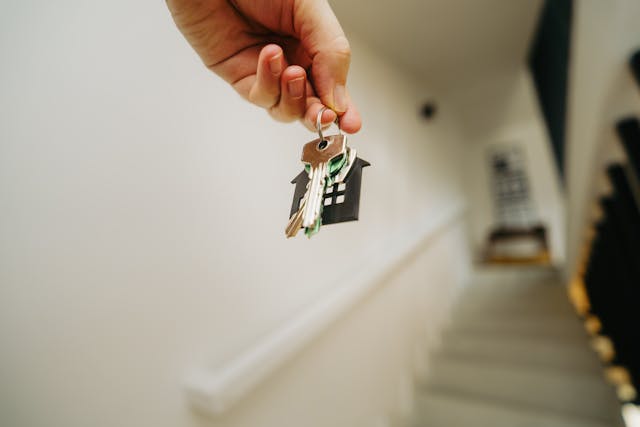Understanding the FSBO Process in California
Selling your home without an agent means taking charge of each step of the process. It's a hands-on approach. You'll handle listings, marketing, negotiations, and paperwork. California has rules that FSBO sellers must follow, including disclosure forms.
• What is FSBO? FSBO means the homeowner sells the property directly without the help of a real estate agent. This can save thousands in commission fees but requires a greater time investment.
• Legal Considerations - California law requires sellers to provide a TDS and an NHD report. They must detail the property's condition and known hazards, like earthquake and flood risks. Skipping these steps can lead to legal issues, so it’s crucial to get them right.
Preparing Your Home for Sale
The appearance of your home can have a significant impact on how quickly it sells. Here’s how to make your home shine without spending a fortune:
• Decluttering and Staging: A clean, organized home helps buyers envision living there. Pack away personal items. Clear out closets. Create open spaces to show off your home's best features.
• Simple Upgrades: You don’t have to renovate the entire house. Small updates can make a big difference. Repaint in neutral tones, fix leaky faucets, and replace old light fixtures. Think of these changes as sprucing up before inviting guests over.
Setting the Right Price for Your Home
Setting the right price for your home is key to a successful FSBO sale. Pricing your home correctly can draw in serious buyers and result in a faster sale.
• Research Market Trends - Check recent sales of similar homes in your area to gauge the current market value. This process is often referred to as finding “comps.”
• Online Valuation Tools - Websites like Zillow and Redfin can provide estimates based on local data. While not perfect, these tools can give you a ballpark figure. A Competitive Market Analysis (CMA) offers a deeper dive into your home’s potential value.
Marketing Your Property
To sell your home without an agent, you will need to put on your marketing hat and get the word out.
• Online Platforms - Post your listing on sites like Zillow, Craigslist, and local real estate forums. Social media can be a powerful tool. Share your listing on Facebook and Instagram to reach more buyers.
• Professional Photography - High-quality photos can greatly boost interest in your home. Hire a professional photographer. They will showcase your home's best angles.
• Crafting Compelling Listings - A great listing tells a story. Highlight the home's best features, nearby amenities, and the unique neighborhood. The right description can attract buyers looking for just what your home has to offer.
Hosting Open Houses and Showings
An open house can attract buyers. But, you must prepare to impress them.
• Scheduling and Preparation - Pick a time that works for most, like weekends. Ensure the home is spotless, bright, and has a pleasant scent.
• Interacting with Buyers - Be friendly and informative. But let buyers explore on their own. Answer questions honestly and emphasize what makes your home a great find.
Handling Negotiations and Offers
Negotiation is a delicate part of selling. Knowing how to respond to offers can make a big difference.
Review and Respond to Offers
• Compare Offers Side by Side. If you get multiple offers, make a comparison table. It should weigh the pros and cons of each. Include offer amounts, contingencies, and buyer flexibility. A slightly lower offer with fewer contingencies can attract more interest at times.
• Consider the Buyer’s Financials. Cash offers usually close faster and with fewer hurdles than those needing mortgage approvals. Ask for proof of funds or a mortgage pre-approval letter. It will confirm the buyer's financial readiness.
• Consult a Real Estate Attorney. It's not mandatory, but a real estate attorney can help. They can review the offer and your response. This ensures that you address all legal aspects before signing.
Tips for Effective Negotiation
• Know Your Bottom Line. Before negotiations, set your minimum price and non-negotiable terms. It avoids accepting an unsuitable offer.
• Stay Calm and Professional. Negotiations can get heated, especially when selling a beloved home. Keep your cool and approach each discussion with a professional attitude. A calm demeanor can help build rapport with buyers.
• Be Open to Compromise. Know your limits. But be willing to negotiate. Consider things like closing dates, repairs, or minor price adjustments.
• Highlight Your Home’s Strengths. Use the positive aspects of your home to justify your asking price. Highlight recent upgrades, unique features, or desirable qualities.
• Leverage Multiple Offers. If you have more than one offer, let buyers know they are competing. This can create urgency. It may push them to make their best offer.
• Be Prepared to Walk Away. If an offer doesn’t meet your needs or a buyer is unwilling to negotiate fairly, don’t be afraid to walk away. Sometimes, holding firm and waiting for a better offer is the best way to protect your interests.

Navigating the Paperwork
When selling a home in California, especially without an agent, you must meet the state's disclosure rules. Here’s a breakdown of the key documents you will need:
1. Transfer Disclosure Statement (TDS). This includes any known issues or defects. You must disclose details about plumbing, electrical, and appliances. Also, disclose any structural problems.
2. Natural Hazard Disclosure (NHD) Report. The NHD report warns buyers of natural risks, such as earthquakes, floods, and fires. Sellers typically obtain this report through a third-party provider.
3. Seller Property Questionnaire (SPQ). This questionnaire lets sellers disclose more details about the property. It covers past repairs, neighborhood nuisances, and any legal issues.
4. Lead-Based Paint Disclosure. For homes built before 1978, this disclosure is required. It informs buyers of any known lead-based paint or hazards in the home. It aims to protect buyers, especially families with young kids, from lead exposure.
5. Water Heater and Smoke Detector Statement of Compliance. California law requires homes sold to have strapped water heaters and working smoke detectors. This statement verifies compliance with those requirements.
6. Carbon Monoxide Detector Statement. Like the smoke detector statement, this verifies that the property has carbon monoxide detectors, as required by state law.
7. Preliminary Title Report. This report, provided by a title company, outlines any liens, easements, or legal restrictions on the property.
8. Purchase Agreement and Sales Contract. This contract outlines the sale terms. It includes the price, closing date, contingencies, and other details. Both the buyer and seller must sign this legally binding document.
Closing the Sale
After accepting an offer, the closing process begins. This final step involves working with a title company and escrow to finalize the deal.
• Role of Title Companies and Escrow: The title company verifies property ownership. It handles the title transfer to the buyer. Escrow services handle the transfer of funds. They ensure all sale conditions are met before the property changes hands.
• What to Expect During Closing: You’ll sign several documents, including the deed and closing statement. Once the buyer secures the funds, you complete the sale and hand over the keys.
• Alternative Option: If the FSBO process feels overwhelming, consider a cash buyer. John Buys Bay Area Houses can help. They have a simple process. They buy homes as-is, with no need for repairs or showings. They close quickly. This is a great option for homeowners who want a fast, hassle-free sale.
Wrapping Up Your FSBO Journey in California
Selling your home on your own in California can be both challenging and rewarding. Know the process, price your home right, and prepare for every step from marketing to closing. Then, you can sell your home without paying high commissions. If you want a quicker, simpler route, contact John Buys Bay Area Houses for a fair cash offer. FSBO or a cash buyer? The right prep and approach can make all the difference.
FAQs about How to Sell Your Own Home in California
What documents are needed to sell a house by owner in California?
These are the TDS, the NHD report, and the sales contract. These forms ensure compliance with California law and transparency with buyers.
How much does it cost to sell a home without a real estate agent?
You will save on agent commissions. But expect costs for listing services, photography, and legal fees. Closing costs may apply. They include title and escrow services. They are usually 1-2% of the sale price.
Do I need a lawyer to sell my home in California?
It's not required by law. But, a real estate attorney can help. They can review contracts and ensure that they meet all legal requirements. This is especially valuable if you’re new to the FSBO process.
How do I determine the right price for my home in California?
Research recent sales of similar properties in your area. Use online valuation tools. Consider getting a Competitive Market Analysis (CMA).
Can I sell my house without making repairs?
Yes, especially to cash buyers like John Buys Bay Area Houses. They buy homes as-is. You can skip repairs and move on without delay.



